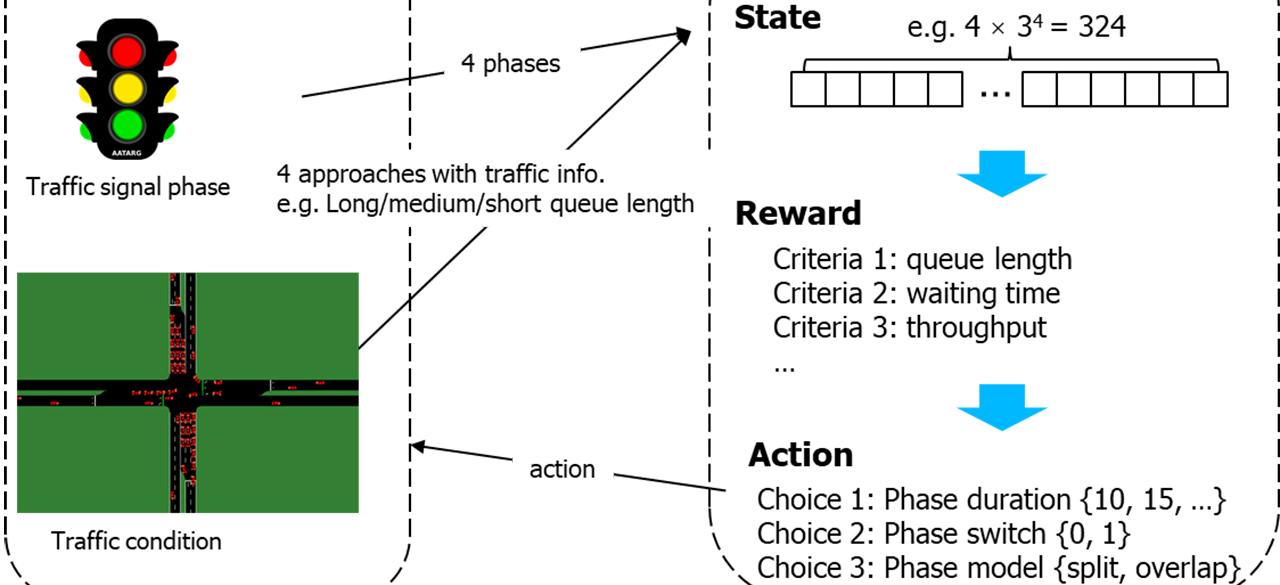Adaptive Traffic Signal Control based on Deep Reinforcement Learning

ABOUT THE PROJECT
At a glance
Traffic signal control is a critical component of urban traffic management. Efficient traffic light control not only optimizes traffic flow in terms of travel time and throughput but also offers potential benefits with respect to road safety and environmental sustainability. The widely used scheme of traffic signal control plan goes by fixed timing and phase, which usually performs unsatisfactorily in coping with real-time traffic dynamics. Adaptive traffic signal control addresses this problem well by dynamically changing signal phase durations based on real-time traffic data from infrastructure sensors (e.g. loop detector, camera, radar). However, for real-world applications of adaptive control, extensive field-testing and manual fine-tuning are needed for deployment at specific sites.
Recent achievements in the field of artificial intelligence (AI), especially deep reinforcement learning (DRL), have showed its potential to endow traffic control with a higher degree of intelligent autonomy. For example, deep Q-learning (DQN), as a “self-learning, data-driven” method, is capable of regulating traffic conditions with inputs of multi-modality of sensor data and can learn an optimal control policy without the need of a manually fine-tuned model, thus making it a promising method for traffic control problems. Moreover, the AI-based framework allows the incorporation of additional inputs, such as infrastructure and vehicle-based sensing and communication-enabled V2X data exchange as well as operations of automated vehicles.
The goal of this project is to develop a traffic control system that utilizes advanced AI methodologies and stream-processing techniques to optimize traffic flow in user-defined roadway networks. Current project phase focuses on traffic signal control in the use cases of single intersection and coordination of multiple intersections, with implementation on an open-sourced simulation platform.
| principal investigators | researchers | themes |
|---|---|---|
| Ching-Yao Chan Pin Wang | Mengyu Guo | Traffic signal control, Deep learning, AI-based traffic management |

